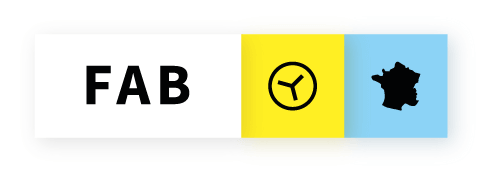REMODEL project
REMODEL is an initiative to explore how manufacturing businesses can use open source methodology and principles to develop sustainable business strategies
All resources on GitHub : https://github.com/RE-MODEL
- Phase-1-Discovering-open-source :REMODEL Phase 1: You will learn the basics of open source principles by getting insights into some succesful manufacturing companies who apply open principles already. These examples show how going…
- Phase-2-Imagining-going-open : REMODEL Phase 2: You will dive into imagining what it would look like if you open source a product from your portfolio (or parts/elements of it). You will select who your most important users are a…
- Phase-3-Visualising-user-journeys : REMODEL Phase 3: Here you will transform one of the user stories you made last week into more detailed storyboards that describe the interaction users will have with your product. Moreover you will…
- Phase-4-Building-community-and-your-system-map : In this phase you will start to lay the foundation for establishing a community around your product by mapping your existing stakeholders, and then dive into imagining the full scope of the system …
- Phase-5-Community-testing-round-one : In this and the next 2 phases you will dive into engaging with what can become your community of co-creators. In this phase you will organize a hackathon (in a simulation) to collect feedback and r…
- Phase-6-Mentor-feedback-community-testing-round-two : In this phase you will be getting valuable expert input from your two mentors, who have been reviewing your work. Following a call with them you will update your system map and pitch according to t…
Organisations utilisatrices ou intéressées pour utiliser la ressource :
Contributeur(s) :
Tags : mentor, strategy, entreprise
Catégories : Connaissance, Communauté
Thème : Open HardWare, Données ouvertes, Logiciel Libre
Référent : Jaime
Défi auquel répond la ressource : Améliorer les solutions et développer de nouvelles solutions de mobilités pour tous, Faire progresser la FabMob
Personnes clés à solliciter : Jaime
Autre commun proche :
Richesse recherchée :
Compétences recherchées :
Communauté d'intérêt : Communauté des offreurs de solution de mobilité
Type de licence :
Conditions Générales d’Utilisation (CGU) :
Niveau de développement : Disponible mais non validé
Lien vers l’outil de gestion des actions :
Lien vers l’outil de partage de fichiers :
Besoins :
Prochaines étapes :
Documentation des expérimentations : Your one-stop-shop for open source manufacturing business strategy building : One of the objectives of the REMODEL program is to crystalize all learnings into a toolkit that will enable many more manufacturing companies than simply those 10 companies participating in the design sprint to build business strategies for hardware based on open source principles on their own : https://danskdesigncenter.dk/en/remodel-toolkit-your-one-stop-shop-open-source-manufacturing-business-strategy-building
Autres informations
Liste des acteurs qui utilisent ou souhaitent utiliser ce commun : aucun pour le moment
Liste des CR d’atelier en lien avec ce commun :
Presentation[modifier | modifier le wikicode]
- Link to slideshare REMODEL
- Link to Blog post Concevoir un Business modèle open source
Understand open source-manufacturing in 30 minutes[modifier | modifier le wikicode]
In the article ‘Why content sharing might just be good for business’, American lawyer Sarah Hinchliff Pearson explains how the internet opens up for possibilities for creating completely new connections to clients and potential co-creators, and how new perspectives on copyright allows for new ways of doing business. The article is primarily concerned with digital content, but a lot of the points are valid when it comes to physical products as well.
The next resource is an article by Canadian Paul Stacey, one of Sarah's colleagues, and with whom she is currently working on a book on the subject. In the article ‘What is an open business model and how can you generate revenue’, he deals with an essential aspect of applying the open source concept in business: It requires a business model which ensures that openness is an integral part of your business and that it is clear how the interaction will be beneficial to both your clients (co-creators) and your company.
We are starting to see some emerging patterns across the many open source-based business models appearing around the world. French researcher and author Louis David Benyayer has written about this and has identified these main categories by mapping out hundreds of businessmodels:
- Platform: The company creates a platform that allows clients and contributors to interact and create open source products, and thereby create value for themselves. The company can select the best contributions and commercialise these. Example: Furniture company OpenDesk.
- Hybrid: The company creates an open source product, to which the public has free access. While the company doesn't earn money directly, they create the opportunity to earn money from additional products and services. Example: Tech-giant Google.
- Dual: In the dual models, the company uses different licenses for different purposes. In other words, the licenses specify how their open products can be used in various contexts. This might mean that the customer is allowed to use the products for free for non-commercial purposes, but that commercial use costs money. Example: Cardgame producer Cards Against Humanity.
- Contributory: With this approach, a community of co-creators surrounds the product, and the company's research and development is placed externally in such a way that the community is where updates or brand new products for the company are developed, while also allowing the company to use the ideas and content created. Example: The software system Linux.
Cooperation proposition[modifier | modifier le wikicode]
Link to shared document

 Français
Français English
English Italiano
Italiano